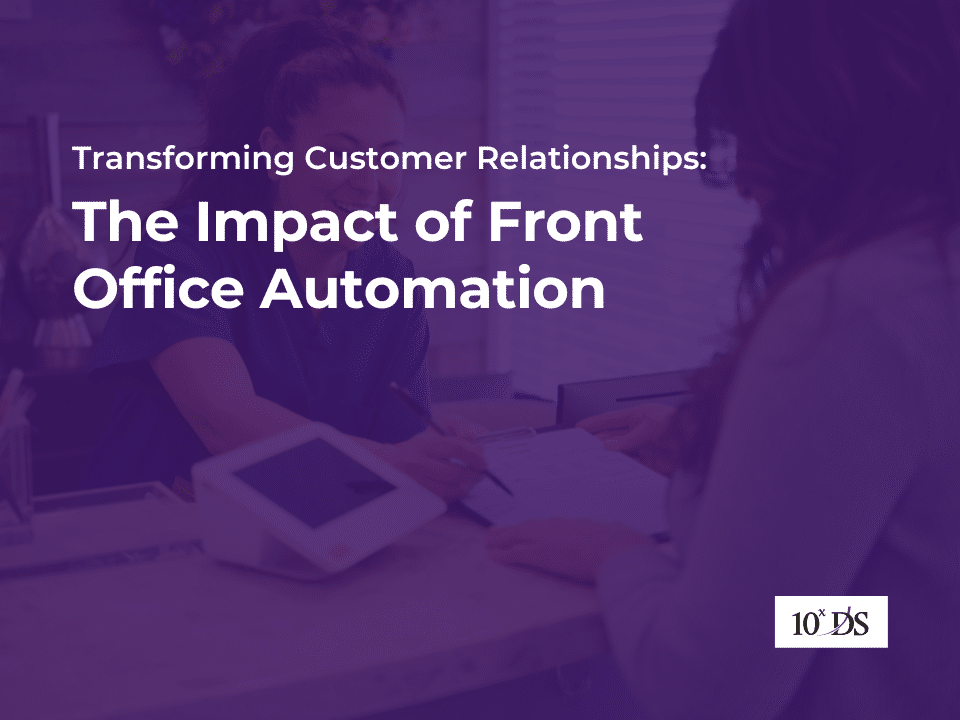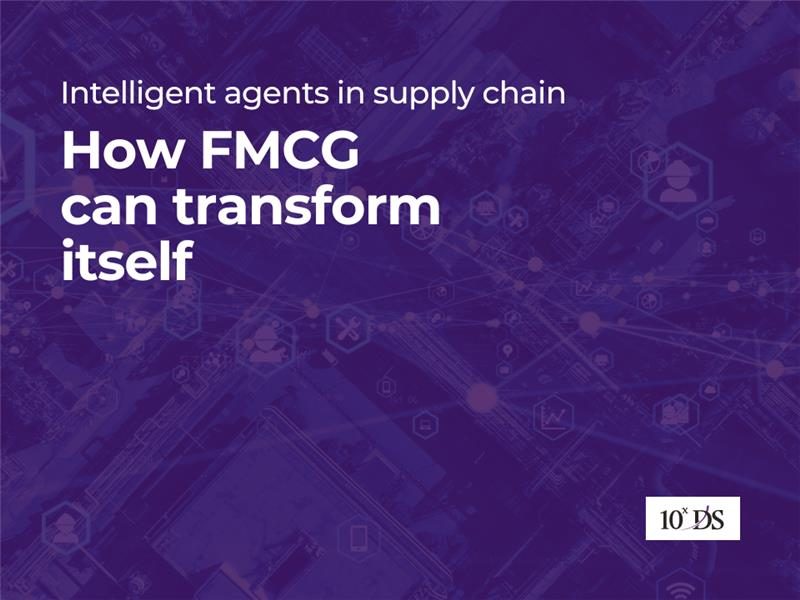
Transforming Customer Relationships: The Impact of Front Office Automation
According to Salesforce Research, 88% of customers say good customer service makes them more likely to purchase again and 80% of customers say the experience a company provides is as important as its product or services. In the ever-evolving landscape of business, customer relationships stand as the cornerstone of success. Most customers say that customer support reps communicating with them in a way that makes them feel valued affects their decision to continue doing business with the company. Hence front offices play a key role in customer acquisition and retention for business growth.
Front office refers to the customer-facing functions and activities of an organization. It is the part of a company that directly interacts with customers, clients, and external stakeholders. Front office functions are essential for building and maintaining relationships with customers, driving sales, and managing the overall customer experience. The front office is contrasted with the “back office,” which handles internal operations such as finance, human resources, and administrative tasks.
Key components of the front office include:
Sales and Marketing: Front office teams often include sales and marketing departments responsible for promoting products or services, attracting new customers, and retaining existing ones. Marketing activities aim to create awareness and interest, while sales teams focus on converting leads into customers.
Customer Service and Support: Customer service is a crucial aspect of the front office, dealing with customer inquiries, providing assistance, and resolving issues. This function plays a significant role in shaping the customer experience and ensuring customer satisfaction.
Public Relations (PR): Front office activities may involve PR teams responsible for managing the organization’s public image, handling media relations, and communicating with the public to maintain a positive brand reputation.
Client Relationship Management (CRM): CRM systems are often part of the front office infrastructure. These tools help businesses manage and analyze interactions with current and potential customers, aiming to improve relationships, streamline processes, and increase profitability.
Communication Channels: Front office operations use various communication channels to interact with customers, including in-person interactions, phone calls, emails, social media, and other digital platforms. Managing these channels effectively is vital for maintaining a strong and consistent customer experience.
The front office is a critical component of any organization, serving as the face of the business to the outside world. Its functions are integral to customer engagement, satisfaction, and overall business success. Efficient front office operations contribute to revenue growth, brand strength, and sustained competitiveness in the marketplace. In recent years, organizations have harnessed the power of technology to enhance customer relationships through front office automation. This transformative approach has not only streamlined processes but has also significantly improved customer interactions, support, and overall satisfaction.
Improved Customer Service
The heart of front office automation lies in the enhancement of customer service. By automating routine tasks, customer service representatives can dedicate more time to resolving complex issues and providing personalized assistance. Chatbots, in particular, offer instantaneous responses, elevating the speed and efficiency of customer support. AI-powered chatbots and virtual assistants have revolutionized customer service by providing instant and intelligent responses to inquiries.
Enhanced Communication
Automation facilitates seamless communication across various channels. Whether through email, social media, or messaging apps, customers can connect with businesses on their terms. Automated communication workflows further enable organizations to send targeted messages and updates based on individual preferences.
Personalization
Businesses today can leverage AI and automation to gather and analyze customer data, allowing for the creation of personalized experiences. From tailored recommendations to targeted marketing campaigns, automation ensures that interactions resonate with individual customers. Integration with CRM systems provides a comprehensive view of customer history, enabling a more personalized approach.
Efficient Sales Processes
Front office automation optimizes sales processes by automating lead scoring, nurturing, and follow-up activities. AI algorithms analyze vast datasets to predict customer behavior, enhancing lead scoring and sales forecasting. This ensures sales representatives focus on high-value leads, ultimately increasing conversion rates. Automated workflows also assist in managing sales pipelines and generating insightful reports for analysis.
Real-time Analytics
Automation tools offer real-time analytics and reporting capabilities, empowering businesses to track customer interactions and monitor performance metrics. These insights enable data-driven decision-making, helping organizations identify areas for improvement and adjust strategies to better meet customer needs.
Consistency in Customer Interactions
Consistency is key in customer interactions, and automation ensures uniformity across various touchpoints. This consistency contributes to a positive customer experience, fostering trust in the brand. AI-driven knowledge bases and self-service portals provide customers with intelligent, cognitive assistance.
24/7 Availability
In a globalized world, the importance of round-the-clock customer support cannot be overstated. Front office automation enables businesses to provide assistance at any time, ensuring customers receive the support they need, regardless of time zone differences.
Front office automation has ushered in a new era of customer relationship management. By enhancing communication, personalizing interactions, streamlining processes, and providing valuable insights, businesses can create a customer-centric approach that fosters satisfaction, loyalty, and overall success. As organizations continue to embrace the power of automation, the future promises even more innovative ways to revolutionize customer relationships.
Talk to our experts to learn more


